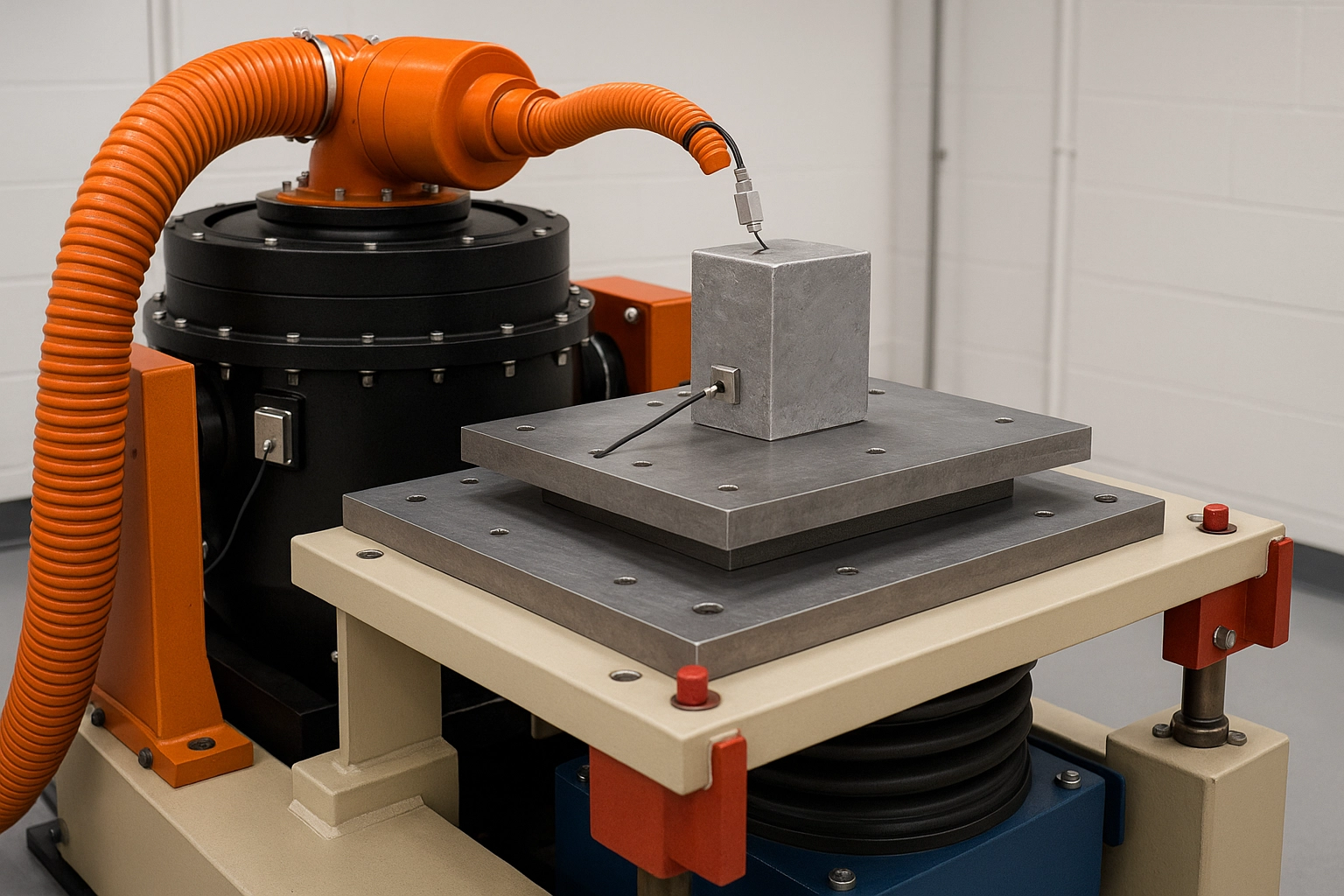DIN EN 61373 Vibration and Shock Testing for Passenger Vehicles
The European standard DIN EN 61373 is a crucial specification designed to ensure the structural integrity, durability, and safety of passenger vehicles under dynamic loading conditions. This standard addresses the mechanical shock and vibration testing that must be conducted on automotive components and assemblies prior to final assembly or deployment in vehicles.
Vibration and shock testing are integral to automotive quality assurance as they help identify potential weaknesses in structural design, material selection, and manufacturing processes. The test methods outlined in DIN EN 61373 simulate real-world conditions that a vehicle might encounter during its operational life, such as road impacts or collisions.
The standard covers various types of tests including sine vibration, random vibration, and step shock. These tests are conducted on individual components (like seat assemblies) as well as complete sub-assemblies to assess their performance under different environmental stresses. The primary purpose is to ensure that the vehicle's components can withstand the rigors they will face without compromising safety or performance.
For example, a seat assembly subjected to vibration tests may be placed on a shaker table and subjected to controlled sine wave motions over a range of frequencies. Similarly, step shock testing involves applying sudden impacts that simulate real-world events such as potholes or debris strikes. The objective is to observe the component's response to these stimuli and assess its durability.
Proper specimen preparation is critical in DIN EN 61373 compliance testing. This includes ensuring that all components are assembled according to manufacturer specifications, with any necessary adjustments made before testing begins. It’s also important to note that the test setup should replicate as closely as possible the expected operational environment of the vehicle.
The instrumentation used in these tests is sophisticated and precise. Accelerometers, force sensors, and displacement transducers are employed to measure parameters such as acceleration, force, and displacement during testing. Data acquisition systems capture this information for detailed analysis afterward.
Acceptance criteria defined by DIN EN 61373 specify the permissible limits of deformation, failure rates, and other critical parameters that must be met. Compliance with these criteria ensures that tested components meet both statutory requirements and manufacturer specifications, thereby enhancing overall vehicle safety and reliability.
International acceptance and recognition of DIN EN 61373 testing are extensive across various regions including Europe, North America, and Asia. This standard is widely used in the automotive industry for quality assurance purposes and has been adopted by numerous manufacturers globally. Here’s a list of some key international standards that complement or align with DIN EN 61373:
- ASTM E2485
- IEC 60068-27
- ISO/TS 16949
- EN ISO 13400
Eurolab Advantages
As a leading laboratory specializing in DIN EN 61373 testing, Eurolab offers several key advantages to our clients:
- Accurate and Reliable Testing: Our state-of-the-art facilities ensure that all tests are conducted with precision and repeatability. We use the latest equipment calibrated to international standards.
- Expertise in Automotive Standards: Eurolab’s team of experienced engineers has deep knowledge of DIN EN 61373 as well as other relevant automotive testing standards, ensuring that our clients receive comprehensive support throughout their projects.
- Comprehensive Reporting: Our detailed reports provide actionable insights into the performance of tested components, helping manufacturers make informed decisions about design improvements and quality control measures.
- Global Compliance: With a strong focus on international standards, Eurolab helps clients ensure their products meet global regulatory requirements, enhancing market entry prospects and customer satisfaction.
Quality and Reliability Assurance
The importance of quality assurance in the automotive industry cannot be overstated. DIN EN 61373 plays a pivotal role in this process by providing stringent guidelines for testing that directly impact product reliability. By adhering to these standards, manufacturers can significantly reduce the risk of failures and recalls, which are costly both financially and reputationally.
Testing according to DIN EN 61373 not only enhances safety but also improves overall vehicle performance. Components that pass these rigorous tests demonstrate superior durability and resilience against environmental stresses. This leads to increased customer satisfaction and trust in the brand, fostering long-term relationships with consumers.
In addition to enhancing quality, compliance with DIN EN 61373 helps manufacturers stay ahead of regulatory changes and industry trends. As automotive technology continues to evolve, standards like this one adapt to incorporate new challenges and opportunities. By embracing these advancements early on, companies can position themselves as leaders in the field.
Moreover, successful completion of DIN EN 61373 testing provides a competitive edge by demonstrating commitment to excellence. This is particularly valuable when bidding for contracts or entering new markets where stringent quality controls are required.





